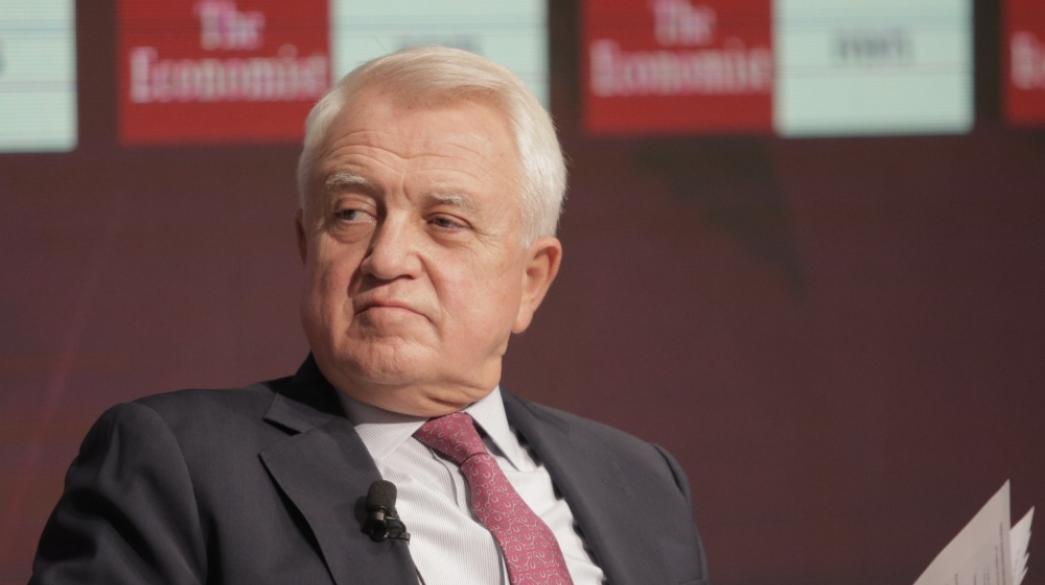When, at the end of July 2018, Anastasios and Dimitris Kallitsantsis prevailed in a battle between shareholders for control of Ellaktor, they declared in all tones that within a year it will have entered a virtuous circle.
The change4Ellaktor initiative of the two businessmen had beaten the side of Leonidas Bombolas and Dimitris Koutras. As they noted during the presentations of Change4Ellaktor, "within 5 years, ELLAKTOR from twice in value (in terms of capitalization) of GEK TERNA is now almost half of GEK TERNA: 370 million euros losses in 5 years, 232 million losses from construction activity. Seven years without dividend distribution to shareholders ".
They promised to reverse the situation. In fact, in the first half of 2018, write-offs were made to clean up the balance sheet, the new administration said.
However, things did not turn out as expected by the management of An. Kallitsantsis, in a company that last presented consolidated profits in 2012! From the day the Change4Ellaktor initiative took over until today, a "black hole" of 500 million euros was revealed in the subsidiary Aktor! Shareholders were informed every six months about Aktor's losses from its international activities, ranging from Australia to Colombia.
Liquidity problems
The group's liquidity problems were intensifying day by day, as a result, debts to suppliers grew significantly, while negotiation with the banks for a financial injection had no result.
The absorption of ELL.TECH Anemos, its renewable energy sources (RES) subsidiary, and other restructuring actions did not bear the expected results. When, in early September, the Kallitsantsis administration claimed that it was in discussions with credit institutions for funds of around 50 million euros, few thought that the extra funding would be provided.
A few weeks later, the announcement came concerning the agreement of the Dutch group Reggeborgh Invest with Leon. Bombolas for the right to acquire the 12% he held in Ellaktor. Since then, the Dutch company, which is already the largest shareholder of GEK TERNA, has increased its stake and is now reportedly ready to gain full control of Ellaktor.
It will be less than three years since Change4Ellaktor won the battle for control of the powerful group, but ended up losing the war for its consolidation.
The current management of Ellaktor claims that in the last two and a half years huge efforts were made to consolidate the group and strengthen its corporate governance. The Kallitsantsis brothers stated in teleconferences with analysts and in general assemblies that they did not know the extent of the damage that Aktor's international activity was hiding. It was these losses of half a billion euros that, however, led to the current embarrassing situation and in fact paved the way for the Dutch intervention of Reggeborgh.
At the last general assembly, Anast. Kallitsantsis had stated that the "black hole" is closing after the huge damage recorded by Aktor from photovoltaic park projects in Australia. He had promised that the new restructuring plan would save about 100 million euros for the group and boost its liquidity.
However, if sources are confirmed, he will not be able to implement the plan, as Reggeborgh is seeking a change of management and more drastic solutions.
The black hole
The brothers argue that the problem were the endless losses from foreign operations but they were not only involved with the foreign projects in the past but also responsible for them.
In 2000, when the Ellaktor group was created (from the merger of Aktor and Hellenic Technodomiki), the division of responsibilities was as follows: Dimitris Koutras was in charge of domestic projects, Dimitris Kallitsantsis was in charge of projects abroad, which were mainly in the Middle East, Anastasios Kallitsantsis the wind energy and Reds, while Leonidas Bombolas was responsible for the concessions and Elector.
The big rift between them started in 2017 on the occasion of major losses arising from projects in the Gulf, amounting to 100 million euros. With these losses, the total losses of Ellaktor from the projects in the Gulf countries amounted to 300 million euros, which, however, were then offset by revenues from previous years, amounting to 280 million euros, from the gradual sale of a stake in a gold mining company.
These losses provoked the strong reaction of Koutras, who demanded and finally imposed the resignation of D. Kallitsantsis from his position. At the same time, Koutras undertook the expansion of Ellaktor in the Balkans (an expansion which also loss-making). This is how the war between the main shareholders of Ellaktor was triggered, leading to an open conflict and the rupture with the Kallitsantsi brothers, who finally prevailed.
However, the above goes against claims from the new administration that it was taken by surprise by bleeding foreign projects. The situation with the contracts abroad was known to the Kallitsantsis family, when it promised the rapid recovery of the group. Many believe that the two brothers, whose ties have not been the best in recent years, took on a large bet. They borrowed 50 million euros from Farallon to buy Ellaktor shares during the dispute with the Bombolas-Koutras side. The loan also contained terms related to Ellaktor's share price. Therefore, "they believed that they would turn the group around and the share would recover significantly", as they said at the time.
However, the share is almost 23% lower than at the end of 2019, despite the rise in the last six months. The group will show losses this year as well. "Is it possible that they did not know the extent of AKTOR's losses?" wonder some in the market. The constant flow of negative news from abroad shows that they did not have an accurate picture of its international position or they believed that in some magical way, everything would be fixed.



